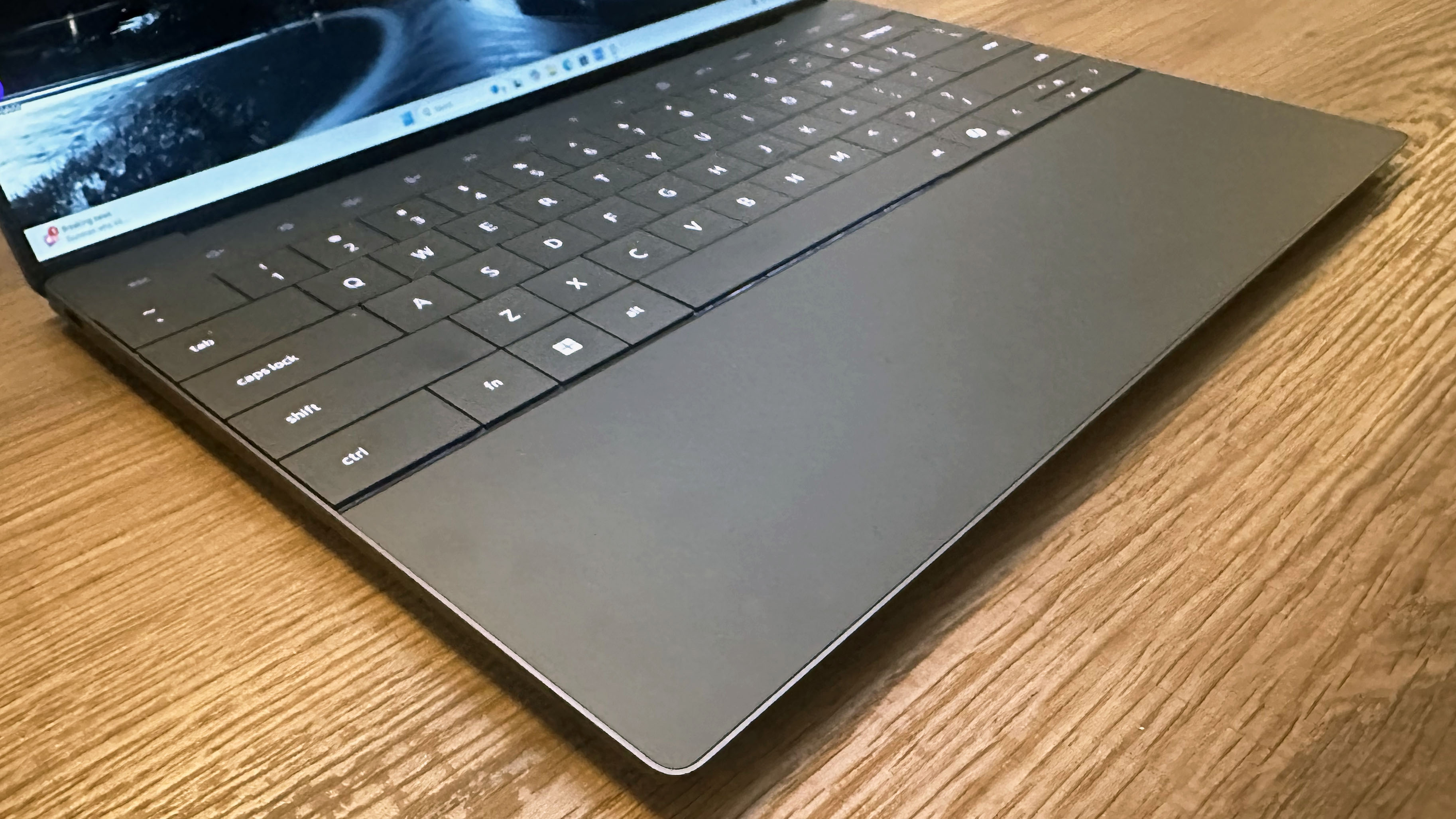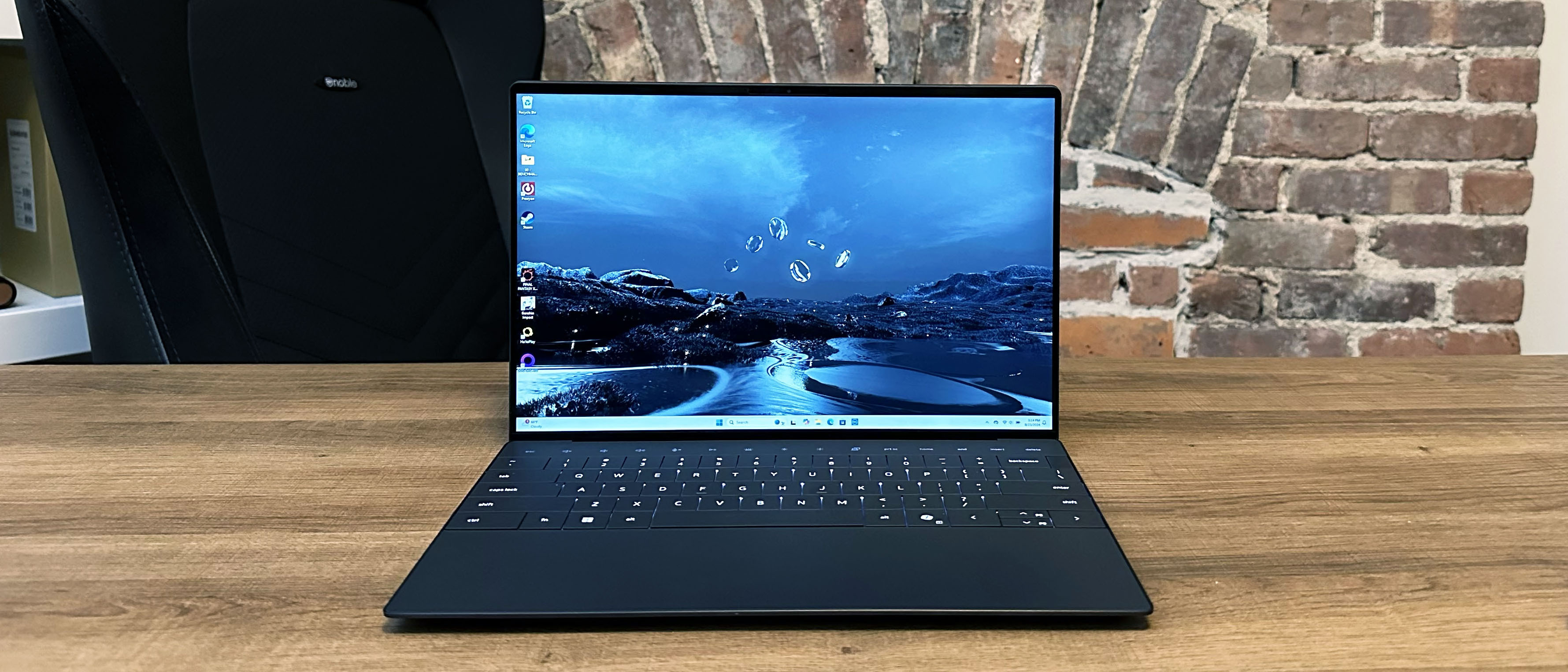Dell XPS 13 leads Intel Lunar Lake laptops with an astounding 18+ hours of battery life
Not quite record breaking, but not far off

Sign up to receive The Snapshot, a free special dispatch from Laptop Mag, in your inbox.
You are now subscribed
Your newsletter sign-up was successful
Portability and performance are two key factors to consider when shopping for a laptop. However, those factors mean very little if you don't have the battery life to fully take advantage of them. Thankfully, battery life is back on the books as a key attraction to the latest laptops coming to the market, and Intel's Lunar Lake chips are helping to keep the space competitive.
Apple has had bragging rights in this area for some time, with its shift to ARM-based M-series chips leading to impressive longevity in the battery department. From that moment on, it was something of a one-horse race.
Though a few x86 models punched above their weight to rival the MacBook, they were few and far between and acted as more of an exception to the general rule than anything else. Then Qualcomm deployed its Snapdragon X platform in June — bringing ARM-backed battery life to Windows laptops in a major way.
That's a rough overview of the battleground that Intel is stepping into as its latest Lunar Lake chips hope to reclaim some ground while hopefully showcasing exceptional performance under the x86 banner. And it's a great moment to highlight Intel's nominated fighter, the Dell XPS 13 (9350).
Dell XPS 13 (9350): Sticking the Lunar landing
What better machine to attempt to showcase Lunar Lake's improved performance and efficiency than the Dell XPS 13 (9350)? The XPS lineup has been a mainstay in our best laptops list over the years, and if there was ever a choice of flagship laptops to showcase the performance and impact of your next-gen chipset, this isn't a bad pick.
Our Dell XPS 13 (9350) review reveals its solid performance, impactful speakers, and some respectable graphics. It also highlights a glaring difference in battery life between the OLED and non-OLED models that could make all the difference to those in search of a genuine all-day contender.
The XPS lineup has often been considered a MacBook counterpart for Windows laptops. But, with Intel's latest Lunar Lake CPU at its heart, can it stand toe-to-toe with Apple's efforts in uptime, and how does it fare when facing off against a Qualcomm Snapdragon X Elite chipset version of itself? Let's find out.
Sign up to receive The Snapshot, a free special dispatch from Laptop Mag, in your inbox.

Dell XPS 13 (9350): Battery life benchmark results
At Laptop Mag, we've developed our own method of testing laptop battery life over the years. This involves closing all background processes (including antivirus software), turning off battery-saving power modes, and any keyboard backlighting or additional chassis lighting.
From here, we disconnect our laptop from its charger and begin cycling through a set collection of 20 web pages containing a mix of static, dynamic, and video content until the battery runs out.
That's the treatment that both Lunar Lake-housing Dell XPS 13 (9350) laptops (OLED and non-OLED) received during our battery benchmark, and our findings couldn't have been further apart.
Click to view benchmark table data
| Laptop | Battery life (web surfing hh:mm) | UL Procyon Office Productivity Battery LIfe |
|---|---|---|
| Dell XPS 13 9350 (Intel Core Ultra 7 258V) | 18:34 | 23:38 |
| Dell XPS 13 9350 OLED (Intel Core Ultra 7 258V) | 08:40 | 12:48 |
While we expected a gap between the two due to the heavier power draw of the tandem OLED model, a nearly ten-hour difference shows the impact and cost of the Dell XPS 13 (9350)'s OLED panel, something consumers will have to get to grips with if they place great value in vibrant and rich displays.
In our Laptop Mag battery test, the Dell XPS 13 (9350) with an LCD panel lasted an incredible 18 hours and 34 minutes.
Meanwhile, the same Intel Core Ultra 7 258V-touting tandem OLED model lasted just 8 hours and 40 minutes.
Dell XPS 13 (9350) battery life: Where does it line up?
With our results in hand, how does the new Dell XPS 13 (9350) slot in among recent ARM and x86 releases, specifically those that have also been put through our in-house battery test previously?
Interestingly, the Dell XPS 13 can claim an incredible win and record a shortfall simultaneously.
The LCD-equipped Dell XPS 13's 18+ hours of battery life place it second, only by 30-minutes to the impressive 19 hours and one-minute record set by the Dell XPS 13 (9345) and its Snapdragon X Elite chipset.
Less close is the lead that the XPS 13 takes ahead of the Apple MacBook Pro 14 M3, which managed a 17-hour and 16-minute run during our November 2023 review.
Click to view benchmark table data
| Laptop | Battery life (web surfing hh:mm) | UL Procyon Office Productivity Battery LIfe |
|---|---|---|
| Dell XPS 13 9345 (Snapdragon X Elite) | 19:01 | Not tested |
| Dell XPS 13 9350 (Intel Core Ultra 7 258V) | 18:34 | 23:38 |
| Apple MacBook Pro 14 M3 | 17:16 | Not tested |
While that's a great success for one model of XPS 13, the OLED configuration fared much worse — coming up short against the Asus Zenbook S 14 OLED featuring the same Intel Core Ultra 7 258V Lunar Lake chipset which lasted for a non-too-special 13 hours and 51 minutes.
Click to view benchmark table data
| Laptop | Battery life (web surfing hh:mm) | UL Procyon Office Productivity Battery LIfe |
|---|---|---|
| Asus Zenbook S 14 (Intel Core Ultra 7 258V) | 13:51 | 16:21 |
| Dell XPS 13 9350 OLED (Intel Core Ultra 7 258V) | 08:40 | 12:48 |
Outlook
While the XPS 13's OLED configuration leaves much to be desired when it comes to battery life, the standard model excels — not only proving itself to be an excellent laptop but showcasing Intel's Lunar Lake platform as a real contender once again against a wave of ARM-based alternatives.
The impressive 18 hours and 34 minutes of uptime achieved by the Dell XPS 13 (9350) will no doubt cause us to perform a major reshuffle of our tracking of the laptops with the best battery runtime, and have us looking forward to Apple's October event for the company's M4 retort to Qualcomm and Intel's overtaking of its MacBook Pro.
More from Laptop Mag
- Best laptop 2024: 10 best laptops tested and rated
- Overall Intel Lunar Lake battery life rundown: Which new Intel Lunar Lake laptop comes out on top?
- Asus Zenbook S 14 UX5406 review: a near-perfect ultraportable

Rael Hornby, potentially influenced by far too many LucasArts titles at an early age, once thought he’d grow up to be a mighty pirate. However, after several interventions with close friends and family members, you’re now much more likely to see his name attached to the bylines of tech articles. While not maintaining a double life as an aspiring writer by day and indie game dev by night, you’ll find him sat in a corner somewhere muttering to himself about microtransactions or hunting down promising indie games on Twitter.
